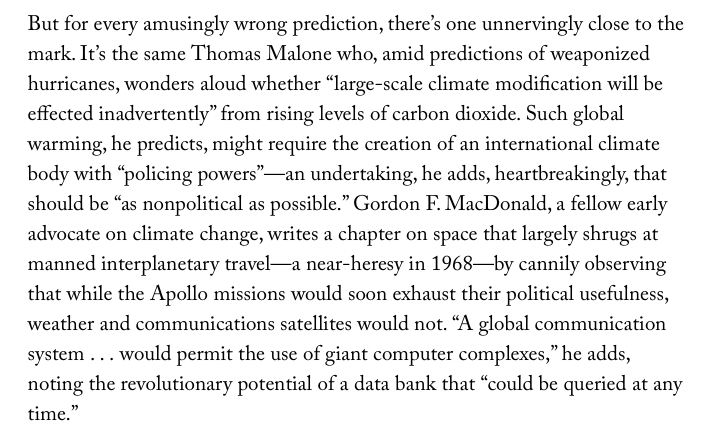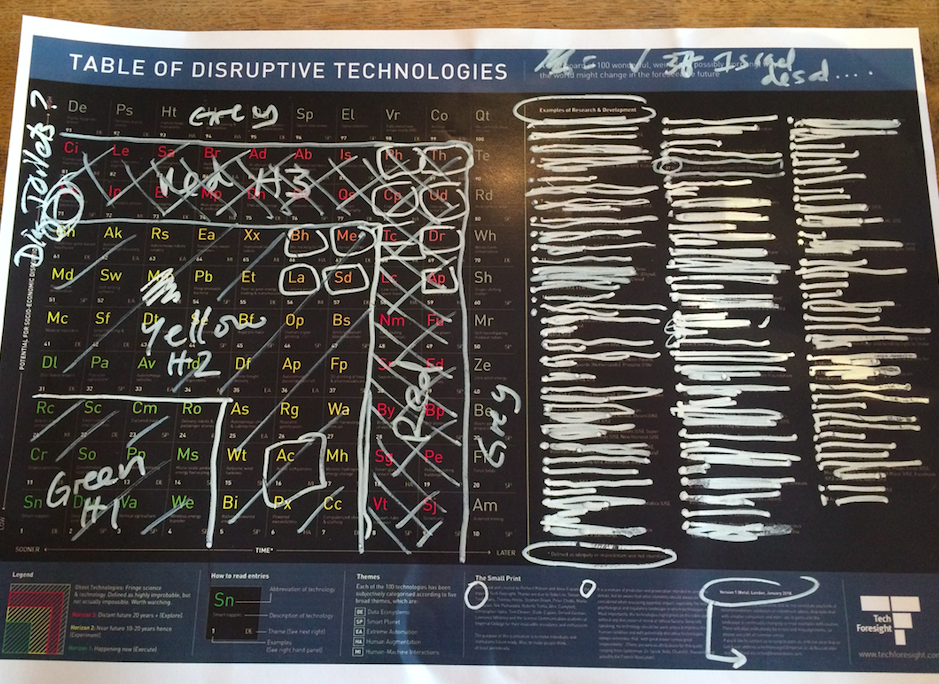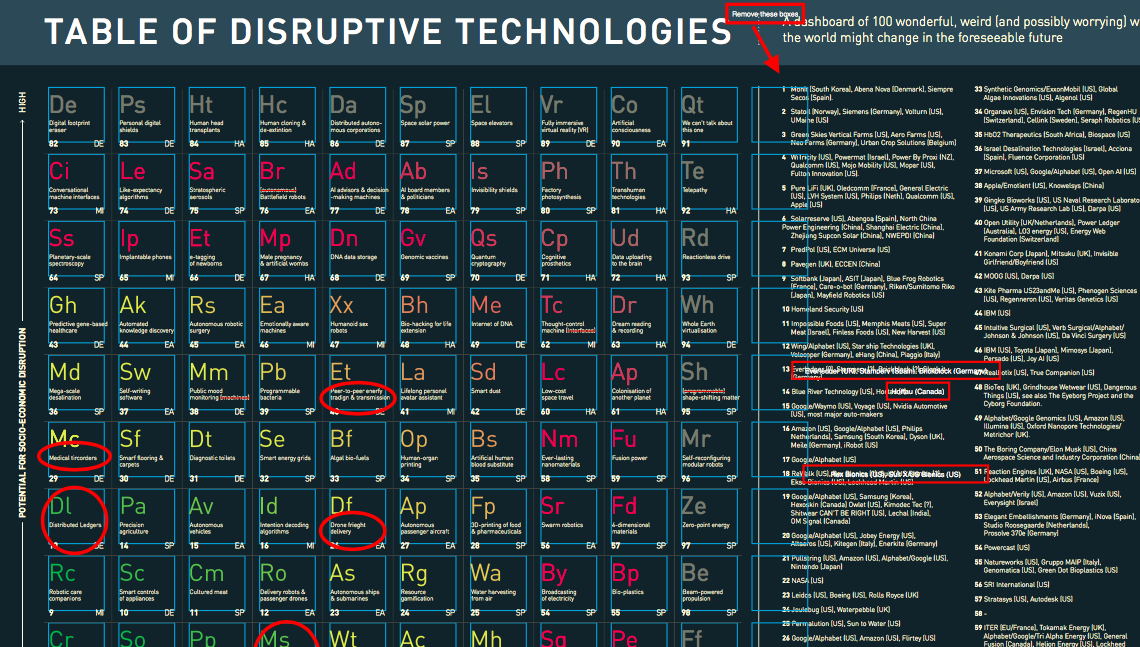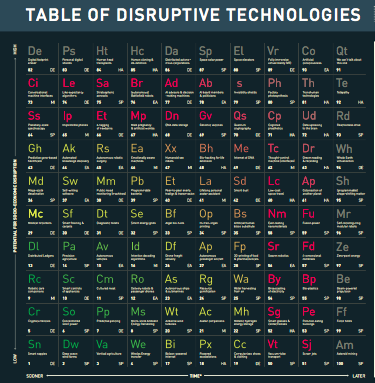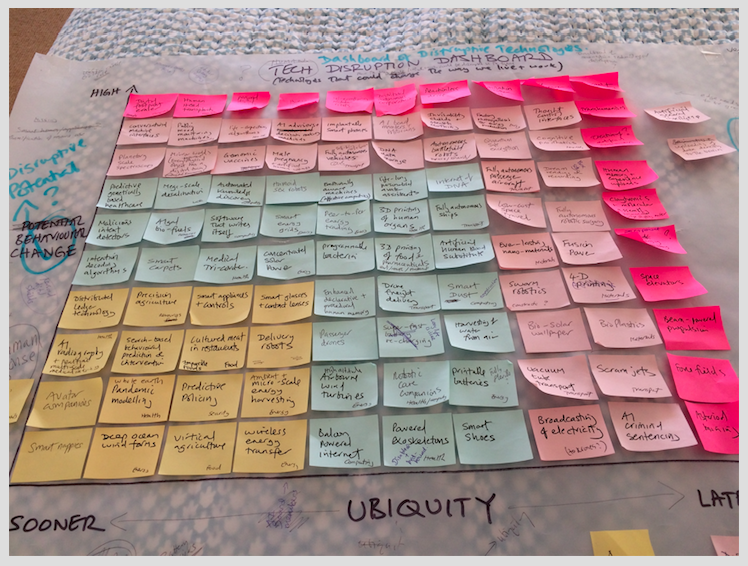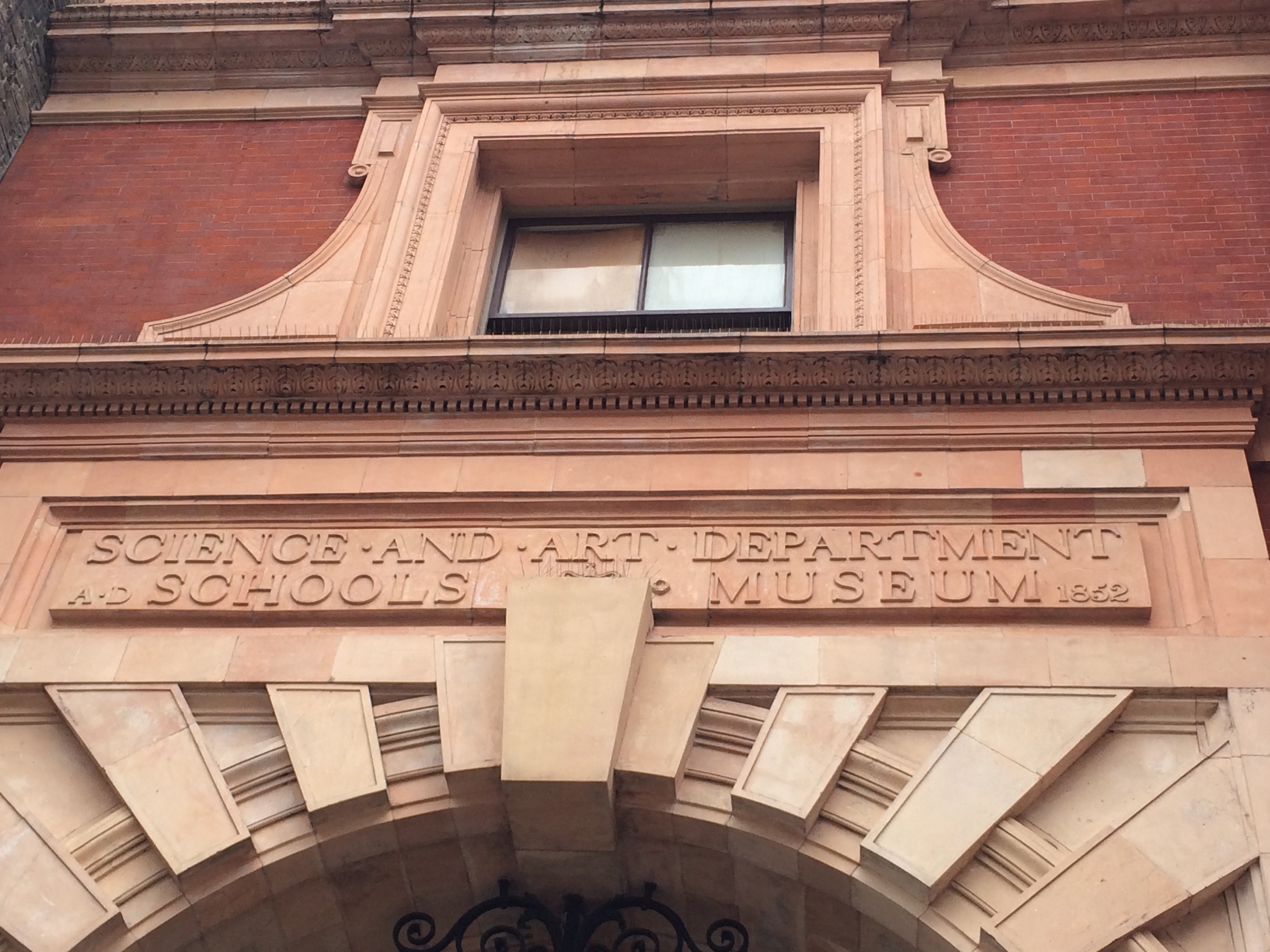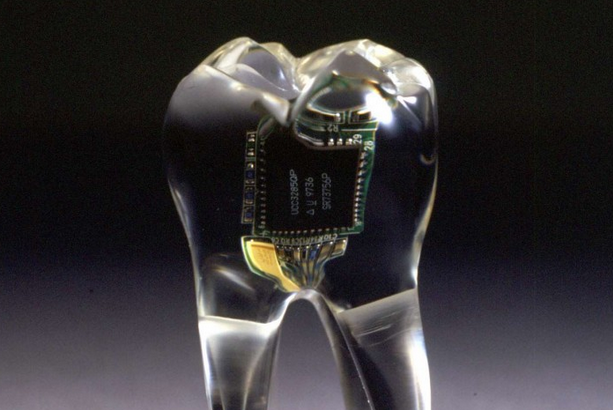Just been thinking about how you might create some vaguely useful scearios if you have a matter of hours at your disposal rather than days or weeks.
1. Explain the purpose of the scenario exercise – generally to stretch a group’s thinking to the edges and reveal any hidden assumptions.*
2. Agree and write down a simple question or issue you want the scenarios to address.**
3. Discuss mega-trends and critical uncertainties and agree just two to create a simple matrix. Each axis should have a high/low dimension or opposing elements.
4. Label the quadrants S1, S2, S3 and S4.
5. Have a go at naming the scenarios, but keep all the names in one genre (e.g. if you pick song titles, make them all song titles).
6. Either give the whole group the task of pulling out the defining characteristics of each scenario or split people into four groups one for each scenario. Defining characteristics would cover the economy, the environment, competitive sets, technology, society (dominant human attitudes and behaviours), resources, politics, regulation etc.
7. Write a paragraph about what each world (scanario) is like to live in. A ‘Day in the life’ works well here. Use images if you can.
8. List early warning signs for each scenario (events that indicate one scenario is emerging versus the others).
9. Write a list of scenario breaking events that could kill off any of these future worlds.
10. Backcast all of the scenarios to now. What would your have to do to remain successful in each scenario? What would you have to change?
BTW, all the above is about being curious and trying to keep an open mind (confirmation bias is a real killer here). Look for things that are new, but also things that don’t make sense or go against the current trend. Group think has an impact here too. If you are 22 and live and work in Shoreditch (or 55 and Tunbridge Wells) that’s your reality. You need to fight this by moving around and meeting people unlike yourself. The inevitable surprises will come from thinking that everyone thinks like you do.
* Despite what people might think, no future is certain. Scenarios are a way of challenging singular entrenched viewpoints.
** This can be the hardest part of the whole process, but often the most useful.

